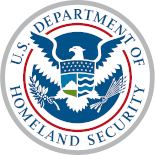1. Provide a forum for interested parties to consider all aspects of GMDSS implementation and recommend action to appropriate authorities. This includes considering modernization of GMDSS systems and procedures and participation in the U.S. SOLAS Communications, Search and Rescue (NCSR) Working Group which formulates U.S. positions on IMO/NCSR issues.
2. Maintain a Public Relations program to inform all sectors of the maritime community on the benefits of GMDSS participation and to solicit feedback on GMDSS problems.
3. Maintain an overview of GMDSS training to encourage well trained GMDSS operators on compulsory vessels, indoctrinate operators of non-compulsory vessels with an appropriate level of voluntary GMDSS training, and advocate programs to minimize false alerts in order to improve the effectiveness of Search and Rescue operations.
4. Maintain liaison with equipment manufacturers and service agents to facilitate proper equipping of compulsory vessels and providing advice to non-compulsory vessels which use GMDSS systems on a voluntary basis.
5. Maintain liaison with the recreational vessel community as by far the largest group in the U.S. maritime sector, to which very little regulation applies and for which there is significant demand for manuals and voluntary training aids.
6. Monitor progress of government and private sector shore radio system modernization to support the GMDSS and offer new services.
7. Monitor developments and promulgate information concerning non-GMDSS radio systems of interest to the maritime community such at the Automatic Identification System (AIS), the Ship Security and Alerting System (SSAS); Voyage Data Recorders (VDR), Long Range Identification and Tracking systems (LRIT), Vessel Monitoring Systems (VMS) used by fishing vessels, and developments in E-Navigation.


